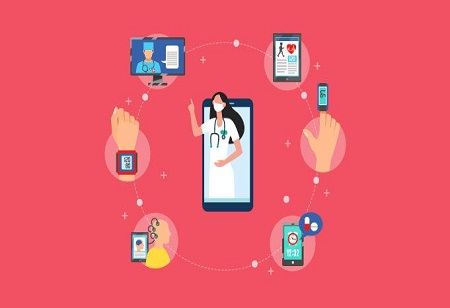Janifha Evangeline, Assistant Editor, India Pharma Outlook | Friday, 24 November 2023

Lupin Digital Health, a subsidiary of Lupin aspires of extending its presence to encompass 30 cities and 70 surrounding towns. The goal of this expansion is to extend its digital therapeutics (DTx) solution, Lyfe, to encompass 75 percent of cardiologists. Speaking on the major challenges and investments associated with digital therapeutics Sidharth Srinivasan, CEO at Lupin Digital Health said, “Significant investment is required for the technology and trials. The technology itself is costly, and we have invested in engineering talent to support it. Trials and evidence generation, such as randomised control trials, also require a substantial investment.” “The journey in this field requires patience, and it may take four to five years before substantial returns are seen. However, Lupin believes in the potential of this pioneering effort and envisions disproportionate returns in the future,” he adds. DTx can be utilized independently or along with conventional treatments such as medication, face-to-face therapy, as well as various hardware, sensory, or mechanical devices. The way the treatment is determined relies on the gathering and handling of digital measurements. Due to the digital nature of the approach, data can be gathered and examined for the purpose of tracking progress and taking preventive actions. At present, efforts are underway to create remedies aimed at preventing and controlling numerous ailments and disorders, including type II diabetes, congestive heart failure, Alzheimer's disease, anxiety, depression, and various other health conditions. The interventions of DTx are distinct from traditional pharmaceuticals and often involve software programs delivered through web-based platforms or mobile apps. The impact of digital therapeutics in patient-centric healthcare is significant and encompasses various aspects:
Personalized Treatment Plans & Improved Accessibility and Convenience
Digital therapeutics enables the development of personalized treatment plans based on individual patient data, preferences, and needs. This patient-centric approach tailors interventions to specific conditions and allows for adjustments based on real-time feedback and progress. Patients can access digital therapeutics from the comfort of their homes, reducing the need for frequent in-person visits to healthcare facilities. This increased accessibility enhances patient convenience, particularly for individuals with chronic conditions who may require ongoing monitoring and support. Happify Health is among the digital therapy firms providing a healthcare platform that merges digital treatments with innovative care delivery methods to improve both mental and physical well-being. “Digital therapeutics is a comprehensive and structured system integrating dietary changes, personalization, workout routine, and continuous monitoring which has been proven to lead to reversal of diabetes in newly diagnosed patients. Even in long-term diabetes, doctors are recommending digital as it can help in superior medication adherence and sugar control,” states Dr Arbinder Singal, Co-Founder, and CEO, Fitterfly.
Enhanced Patient Engagement & Real-Time Monitoring and Data Collection
Digital therapeutics often incorporates features that encourage patient engagement, such as interactive interfaces, educational content, and real-time feedback. This engagement can lead to better adherence to treatment plans and increased patient empowerment in managing their health. Digital therapeutics enables continuous monitoring of patient health through the collection of real-time data. This data can be analyzed to provide insights into patient progress, allowing healthcare providers to make informed decisions and adjustments to treatment plans.
Kaia Health is a company specializing in digital therapeutics, offering scientifically proven treatments for diverse medical conditions. Kaia provides online programs designed to assist individuals with COPD, as well as those experiencing back pain, hip pain, and other musculoskeletal disorders.
Cost-Effectiveness & Support for Chronic Disease Management In some cases, digital therapeutics can offer a cost-effective alternative to traditional forms of treatment. By reducing the need for physical infrastructure and personnel, these solutions can contribute to more efficient healthcare delivery. Digital therapeutics are particularly valuable in the management of chronic conditions. They can provide ongoing support, education, and monitoring for conditions such as diabetes, hypertension, and mental health disorders, helping patients manage their health proactively.
Cara, a pharmaceutical company, provides assistance to individuals suffering from chronic digestive disorders. The company develops digital therapeutic treatments that are meant to enhance advanced methods of dealing with gastrointestinal illnesses.
Integration with Traditional Healthcare & Behavioral Change Support
Digital therapeutics can be integrated into traditional healthcare models, creating a more holistic and comprehensive approach to patient care. This integration involves collaboration between healthcare providers, digital health companies, and other stakeholders. Many digital therapeutics focus on influencing patient behavior to promote healthier lifestyles. Through features like goal-setting, reminders, and behavioral incentives, these interventions can contribute to sustained positive changes in lifestyle habits. Lark Health is an example of a digital healthcare company offering an AI-based platform to effectively handle chronic illnesses including diabetes, hypertension, and behavioral health.
Data Security and Privacy Considerations
As with any digital health solution, ensuring the security and privacy of patient data is crucial. Digital therapeutics must adhere to robust cyber security measures and comply with relevant regulations to maintain patient trust and confidentiality. The regulatory landscape for digital therapeutics is evolving. Establishing clear regulatory frameworks and standards is essential to ensure the safety and efficacy of these interventions while fostering innovation in the digital health space. Biofourmis is a biotechnology company that applies digital pharmaceuticals to offer customized care and solutions. The technology used by the company utilizes artificial intelligence to merge and examine consistent physiological data from advanced wearables used in a clinical setting. In summary, digital therapeutics play a vital role in promoting patient-centric healthcare by offering personalized, accessible, and engaging interventions. As the field continues to evolve, addressing challenges related to regulation, data security, and integration into traditional healthcare systems will be crucial to maximizing the positive impact of digital therapeutics on patient outcomes.